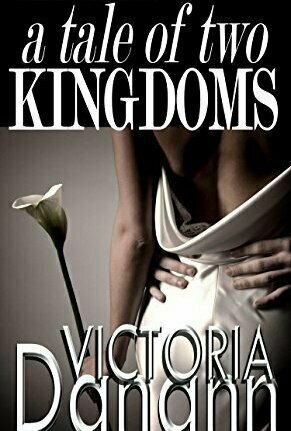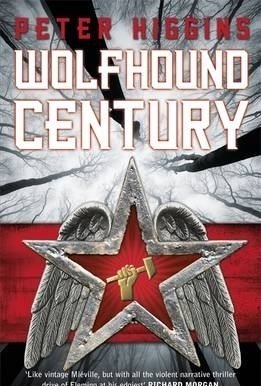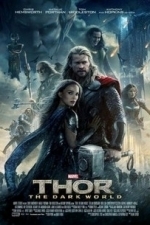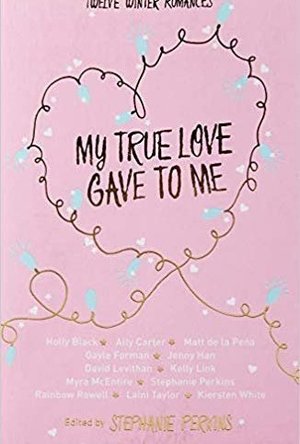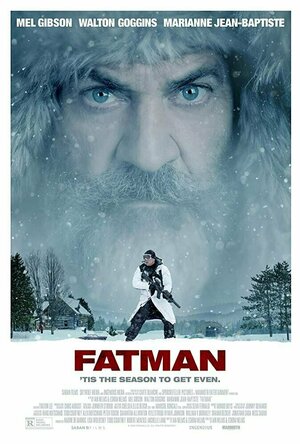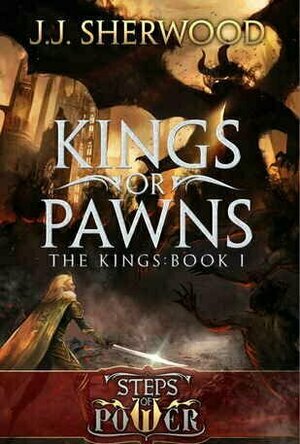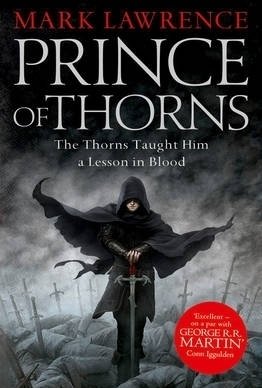Search
Search results
Merissa (12911 KP) rated A Tale of Two Kingdoms (Knights of Black Swan #6) in Books
Apr 3, 2023 (Updated Apr 10, 2023)
The story of star-crossed lovers has been around for a while and if asked, most people would say that Romeo & Juliet is the most famous one. Well think again because Duff and Aelsong are about to take that crown! This story has been a long time coming as we met Duff and Aelsong in Book 2 (The Witch's Dream) but it is well worth the wait. Duff has decided that he has waited long enough and makes a plan to ensure that he and Aelsong are together. He enlists the help of some friends, new and old and along the way you get a glimpse of what the royal lives are like for both the Fae and the Elves. Are they really that different? How do you fight prejudice that is so ingrained no one can actually remember why it all started in the first place?
This is a romance primarily but it also deals with issues like prejudice, history, war and even all of the above in one family! This book does not disappoint on any level and the standard of Victoria Danann's writing just keeps on getting better. No, this isn't as long as the others and NO this definitely doesn't affect the quality. It just meant that I was able to sit and read this in one sitting with no interfering habits, like sleeping, getting in the way!
This is part of a series and I would highly recommend that you read them in order. As a taster, the first book - The Familiar Stranger - is FREE. Get this one, take a deep breath, enter another dimension and never look back.
Merissa
Archaeolibrarian - I Dig Good Books!
April 10, 2021
This is a romance primarily but it also deals with issues like prejudice, history, war and even all of the above in one family! This book does not disappoint on any level and the standard of Victoria Danann's writing just keeps on getting better. No, this isn't as long as the others and NO this definitely doesn't affect the quality. It just meant that I was able to sit and read this in one sitting with no interfering habits, like sleeping, getting in the way!
This is part of a series and I would highly recommend that you read them in order. As a taster, the first book - The Familiar Stranger - is FREE. Get this one, take a deep breath, enter another dimension and never look back.
Merissa
Archaeolibrarian - I Dig Good Books!
April 10, 2021
Lyndsey Gollogly (2893 KP) rated Blackbird Rising (. The Witch Kings Crown book 1) in Books
Feb 16, 2022
29 of 230
Book
Blackbird Rising ( The Witch Kings Crown book )
By Keri Arthur
⭐️⭐️⭐️⭐️
A modern fantasy novel inspired by the King Arthur legend...
For hundreds of years, the Witch King’s sword has been buried in stone awaiting the next hand to draw it.
Many have tried. None have succeeded.
Gwen is the last in a long line of De Montfort witches whose duty it is to protect the sword of all power. But when she returns to King Island to perform the blessing, a mysterious pulse of blue light tells her that someone has attempted to draw the sword. Before she can investigate any further, demons attack. She only survives with the help of a mysterious stranger who disappears as quickly as he appears.
Gwen and her grandmother, Moscelyne, soon discover that minor gateways into Darkside—the traditional home of both demons and dark elves—are being forced open by magic. Even worse, someone is now sending demons after the Witch King’s heirs.
As vital artifacts are stolen by Darkside and the deaths draw altogether too close to home, Gwen and Mo—with the help of old gods and an ancient order of knights once thought dead—scramble to unravel the clues and stop the murderous would-be king from claiming the crown.
If they fail and the wrong hand draws the sword of power, he can unlock the main gateway into Darkside and unleash utter hell onto an unsuspecting and unprepared England....
Another of Keri Arthur’s books I just just loved. King Arthur inspired based in England with some brilliant characters. Finished it quite quickly and can’t wait to start the next! Although it’s been added to a very long tbr pile 😂
Book
Blackbird Rising ( The Witch Kings Crown book )
By Keri Arthur
⭐️⭐️⭐️⭐️
A modern fantasy novel inspired by the King Arthur legend...
For hundreds of years, the Witch King’s sword has been buried in stone awaiting the next hand to draw it.
Many have tried. None have succeeded.
Gwen is the last in a long line of De Montfort witches whose duty it is to protect the sword of all power. But when she returns to King Island to perform the blessing, a mysterious pulse of blue light tells her that someone has attempted to draw the sword. Before she can investigate any further, demons attack. She only survives with the help of a mysterious stranger who disappears as quickly as he appears.
Gwen and her grandmother, Moscelyne, soon discover that minor gateways into Darkside—the traditional home of both demons and dark elves—are being forced open by magic. Even worse, someone is now sending demons after the Witch King’s heirs.
As vital artifacts are stolen by Darkside and the deaths draw altogether too close to home, Gwen and Mo—with the help of old gods and an ancient order of knights once thought dead—scramble to unravel the clues and stop the murderous would-be king from claiming the crown.
If they fail and the wrong hand draws the sword of power, he can unlock the main gateway into Darkside and unleash utter hell onto an unsuspecting and unprepared England....
Another of Keri Arthur’s books I just just loved. King Arthur inspired based in England with some brilliant characters. Finished it quite quickly and can’t wait to start the next! Although it’s been added to a very long tbr pile 😂
Haley Mathiot (9 KP) rated Wolfhound Century in Books
Apr 27, 2018
When I first started reading (well, listening) to this book, I got a little confused and disoriented. There were a lot of names and places that, although they were English, they weren’t words or names that I knew, so I had trouble keeping track of what was going on. Part of the problem was I listened to a chapter here, a chapter there. So I put it aside, listened to something else, and went back to it later when I had hours upon hours to invest into it.
Boy am I glad I listened to this story.
I cannot describe to you how beautiful this story was. It was exciting and nerve wracking and terrifying. It was totally new and different and unique from anything else I’ve ever read. It had a love story, but it was an epic love story, not a romance as defined by the modern-day genre. It was sweet and beautiful and enthralling. It’s fantasy, but it’s not “elves and dwarves and fairies” fantasy… it’s fantastical and imaginary and connected with nature, but there aren’t warlocks. Higgins has his own set of creatures, his own city and country, his own history, his own world, and I loved it (though I didn’t want to live there. Read the summary, you wouldn’t either). On top of that, the writing was descriptive and concrete, and I felt like I was a part of the world. I felt like I was Lom an Marucia and Raku (I have no idea how to spell their names because I listened to the audio). I seriously didn’t want it to end.
Man, it’s been a good year for audiobooks! Guys, get this one asap. Give it thirty minutes of your time, and you’ll be sucked in.
Neil Dickson, the narrator, was also wonderful. He’s done a few other audiobooks, including the dramatized edition of The Importance of Being Earnest, and James Patterson’s The Jester. I’m definitely going to keep my eyes open for other work he does.
Content/Recommendation: Some violence, darker themes. Ages 16+
Boy am I glad I listened to this story.
I cannot describe to you how beautiful this story was. It was exciting and nerve wracking and terrifying. It was totally new and different and unique from anything else I’ve ever read. It had a love story, but it was an epic love story, not a romance as defined by the modern-day genre. It was sweet and beautiful and enthralling. It’s fantasy, but it’s not “elves and dwarves and fairies” fantasy… it’s fantastical and imaginary and connected with nature, but there aren’t warlocks. Higgins has his own set of creatures, his own city and country, his own history, his own world, and I loved it (though I didn’t want to live there. Read the summary, you wouldn’t either). On top of that, the writing was descriptive and concrete, and I felt like I was a part of the world. I felt like I was Lom an Marucia and Raku (I have no idea how to spell their names because I listened to the audio). I seriously didn’t want it to end.
Man, it’s been a good year for audiobooks! Guys, get this one asap. Give it thirty minutes of your time, and you’ll be sucked in.
Neil Dickson, the narrator, was also wonderful. He’s done a few other audiobooks, including the dramatized edition of The Importance of Being Earnest, and James Patterson’s The Jester. I’m definitely going to keep my eyes open for other work he does.
Content/Recommendation: Some violence, darker themes. Ages 16+
Ryan Hill (152 KP) rated Thor: The Dark World (2013) in Movies
May 10, 2019
"i didn't do it for him"
I was hoping to see something in The Dark World that I had missed the previous two viewings...something to help me enjoy this a bit more. Unfortunately, I hadn't missed anything. This is a drag.
Where do I start with the flaws? A lot of characters are criminally underutilised including Jane Foster, Erik Selvig, Odin, Heimdall and perhaps most important, the main antagonist, Malekith. I like the idea of the Dark Elves being used here but the execution is terribly flawed. It doesn't help that the likes of Natalie Portman and Anthony Hopkins are seemingly coasting here; the former with literally no chemistry with her love interest. Although the latter's sheer presence helps boost scenes he is in, even if he isn't trying. The other issue is this whole film is essentially flashes of brilliance drowning in a sea of mediocrity. Every now and then we get a cool scene involving Loki or Thor will crack a joke or there will be a cool action sequence but then that 5 minutes is followed by 20 minutes of characters having little to do. It's criminally boring.
I bet you can all guess the good...Chris Hemsworth who plays Thor and Tom Hiddleston who plays Loki. These two are the stars (obviously) and if it wasn't for them, this would probably get only one star. I mean, I like Thor's friends but they don't get much screentime in this. I like the look of Asgard but the story that accompanies it is boring.
It's a shame that two great lead characters are wasted by weak writing and unmotivated performances from some other cast members.
Where do I start with the flaws? A lot of characters are criminally underutilised including Jane Foster, Erik Selvig, Odin, Heimdall and perhaps most important, the main antagonist, Malekith. I like the idea of the Dark Elves being used here but the execution is terribly flawed. It doesn't help that the likes of Natalie Portman and Anthony Hopkins are seemingly coasting here; the former with literally no chemistry with her love interest. Although the latter's sheer presence helps boost scenes he is in, even if he isn't trying. The other issue is this whole film is essentially flashes of brilliance drowning in a sea of mediocrity. Every now and then we get a cool scene involving Loki or Thor will crack a joke or there will be a cool action sequence but then that 5 minutes is followed by 20 minutes of characters having little to do. It's criminally boring.
I bet you can all guess the good...Chris Hemsworth who plays Thor and Tom Hiddleston who plays Loki. These two are the stars (obviously) and if it wasn't for them, this would probably get only one star. I mean, I like Thor's friends but they don't get much screentime in this. I like the look of Asgard but the story that accompanies it is boring.
It's a shame that two great lead characters are wasted by weak writing and unmotivated performances from some other cast members.
Hazel (1853 KP) rated My True Love Gave to Me: Twelve Winter Romances in Books
Dec 7, 2018
<i>This eBook was provided by the publisher via NetGalley in exchange for an honest review </i>
With 25th December fast approaching, what better book to read than one full of Christmas stories? <i>My True Love Gave To Me </i>is a selection of twelve winter romances (twelve stories, twelve days of Christmas…) by a handful of well-known authors of young adult literature. Stephanie Perkins, author of <i>Anna and the French Kiss</i>, is the editor of this festive volume and also includes her own short story along with Holly Black, Ally Carter, Gayle Forman and Rainbow Rowell, to name a few.
Aimed at teenaged girls or young adults, the stories focus on characters between the ages of 15 and 19, usually in a contemporary setting. Some are written as romances that just so happen to occur at Christmas time, whereas others use Christmas as a main focal point. Naturally there are a couple of tales that are pure fantasy with magic, Santa and elves, but they all involve romance.
What is great about incorporating twelve authors into one book is the various ideas about what Christmas means to different people. For some it is about family whereas other’s it is about the birth of Jesus. Authors also explore the difficulties some people face as well as what people who do not celebrate do. The stories are diverse including characters from all types of background – race, religion and sexuality.
My favourite story from this selection was by David Levithan. Unlike most of the others, it was not a story about falling in love. The main character already had a boyfriend who he (yes, HE) loved. The tale focused on what people do for love as well as keeping the magic of Christmas alive for others.
For those wanting to read something festive, this is the book for you. Its short stories let you dip in and out during this busy period meaning you can enjoy both reading and celebrating at the same time.
With 25th December fast approaching, what better book to read than one full of Christmas stories? <i>My True Love Gave To Me </i>is a selection of twelve winter romances (twelve stories, twelve days of Christmas…) by a handful of well-known authors of young adult literature. Stephanie Perkins, author of <i>Anna and the French Kiss</i>, is the editor of this festive volume and also includes her own short story along with Holly Black, Ally Carter, Gayle Forman and Rainbow Rowell, to name a few.
Aimed at teenaged girls or young adults, the stories focus on characters between the ages of 15 and 19, usually in a contemporary setting. Some are written as romances that just so happen to occur at Christmas time, whereas others use Christmas as a main focal point. Naturally there are a couple of tales that are pure fantasy with magic, Santa and elves, but they all involve romance.
What is great about incorporating twelve authors into one book is the various ideas about what Christmas means to different people. For some it is about family whereas other’s it is about the birth of Jesus. Authors also explore the difficulties some people face as well as what people who do not celebrate do. The stories are diverse including characters from all types of background – race, religion and sexuality.
My favourite story from this selection was by David Levithan. Unlike most of the others, it was not a story about falling in love. The main character already had a boyfriend who he (yes, HE) loved. The tale focused on what people do for love as well as keeping the magic of Christmas alive for others.
For those wanting to read something festive, this is the book for you. Its short stories let you dip in and out during this busy period meaning you can enjoy both reading and celebrating at the same time.
Gareth von Kallenbach (980 KP) rated Fatman (2020) in Movies
Nov 12, 2020
Billy Wenan (Chance Hurstfield) is a very spoiled, entitled, and sadistic young boy. He has the advantages of privilege and lives with his wealthy Grandmother but is rude and condescending to the staff. Billy is also very arrogant and petty to the point that a Runner Up finish at his private school Science Fair after a string of wins motivates him to hire a Hitman (Walton Goggins) to intimidate the victor to falsely admit to cheating so he can claim victory.
This is not the first time Billy has hired the Hitman and when he gets a lump of coal for Christmas from Santa (Mel Gibson) he is enraged and hires the Hitman to take out Santa.
Santa has his own issues as a decline in revenue has forced him and his wife Ruth (Marianne Jean-Baptiste) to take on a project with the government to not only restore his fully stipend but to pay additional funds that will ensure financial stability.
The fact that the Hitman has his own reasons for having issues with Santa further motivates him to take the job and rushed north to face Santa on his own turf.
“Fatman” is a dark and entertaining new holiday entry that gives a contemporary take on Santa and his Elves as they must contend with the issues, politics, and changing world that face many companies.
The at times dark nature of the film is an interesting contrast to the usual overly sweet films that are commonplace this time of year and Gibson and Goggins backed by a strong supporting cast turn in memorable performances.
While not one for the kids; “Fatman” is a solid piece of entertainment and Eshom and Ian Nelms keep things moving at a steady pace and provide an interesting and contemporary look at Santa in the modern world and combine it with a story about finding a way through adversity.
This is not the first time Billy has hired the Hitman and when he gets a lump of coal for Christmas from Santa (Mel Gibson) he is enraged and hires the Hitman to take out Santa.
Santa has his own issues as a decline in revenue has forced him and his wife Ruth (Marianne Jean-Baptiste) to take on a project with the government to not only restore his fully stipend but to pay additional funds that will ensure financial stability.
The fact that the Hitman has his own reasons for having issues with Santa further motivates him to take the job and rushed north to face Santa on his own turf.
“Fatman” is a dark and entertaining new holiday entry that gives a contemporary take on Santa and his Elves as they must contend with the issues, politics, and changing world that face many companies.
The at times dark nature of the film is an interesting contrast to the usual overly sweet films that are commonplace this time of year and Gibson and Goggins backed by a strong supporting cast turn in memorable performances.
While not one for the kids; “Fatman” is a solid piece of entertainment and Eshom and Ian Nelms keep things moving at a steady pace and provide an interesting and contemporary look at Santa in the modern world and combine it with a story about finding a way through adversity.
Rachel King (13 KP) rated Summers at Castle Auburn in Books
Feb 11, 2019
With all of the series that I constantly fight to keep up with, this was a nice change with an all-in-one plot. The story is told entirely from Coriel Halsing's point of view, so the reader only gets to know things when she learns of them. Sometimes first person P.O.V. is limiting and somewhat claustrophobic, but in this case it simplified the story line and helped me to better get inside the mind of Coriel.
I grew to love Coriel as her story progressed and she matured into a strong, independent young woman. I love that she is not just a pretty face, but possesses both intelligence and wit. In many ways, this book is her coming-of-age story with a fantasy background that could have easily been traded for some other setting without compromising the character of Coriel Halsing.
I also love that Coriel is not the center of royal attention - like her sister, Elisandra - and the "handsome prince" is neither meant for her nor remotely appealing to me, the reader. It was quite entertaining for me to be constantly guessing as to whom Coriel would eventually wind up with. When the man was finally revealed, I was very happy with the results, though I would have enjoyed a bit more wooing on his part.
All of the different characters are well-developed and unique, from the narcissistic handsome prince Bryan, to the always-composed Elisandra, to the many aliora that populate the book. The aliora are quite fascinating, comparable to fairies or elves in description, but still unique to Sharon Shinn's design. In many ways, the aliora act as catalysts for political intrigue within Castle Auburn, as well as Coriel's personal development and maturation.
As an adult fairy-tale, this book can easily appeal to both teens and adults, as the romance is tastefully done and the risque topics, such as slavery, suicide, and illigitimacy, are handled with care and respect. Personally, I loved this book as much as I have loved everything else I have read from Sharon Shinn.
I grew to love Coriel as her story progressed and she matured into a strong, independent young woman. I love that she is not just a pretty face, but possesses both intelligence and wit. In many ways, this book is her coming-of-age story with a fantasy background that could have easily been traded for some other setting without compromising the character of Coriel Halsing.
I also love that Coriel is not the center of royal attention - like her sister, Elisandra - and the "handsome prince" is neither meant for her nor remotely appealing to me, the reader. It was quite entertaining for me to be constantly guessing as to whom Coriel would eventually wind up with. When the man was finally revealed, I was very happy with the results, though I would have enjoyed a bit more wooing on his part.
All of the different characters are well-developed and unique, from the narcissistic handsome prince Bryan, to the always-composed Elisandra, to the many aliora that populate the book. The aliora are quite fascinating, comparable to fairies or elves in description, but still unique to Sharon Shinn's design. In many ways, the aliora act as catalysts for political intrigue within Castle Auburn, as well as Coriel's personal development and maturation.
As an adult fairy-tale, this book can easily appeal to both teens and adults, as the romance is tastefully done and the risque topics, such as slavery, suicide, and illigitimacy, are handled with care and respect. Personally, I loved this book as much as I have loved everything else I have read from Sharon Shinn.
Merissa (12911 KP) rated Claimed by a Demon King (Eternal Mates, #2) in Books
Dec 17, 2018
I received an ARC edition of this book in exchange for a fair and honest review.
As the title says, this is book 2 in the Eternal Mates series and as such I recommend reading Kissed by a Dark Prince first, although this is not altogether necessary.
A lunar month has passed since the end of Book 1 and during that time Sable has been dreaming of King Thorne but keeps telling herself that she isn't interested. She is aiming to be Commander in Archangel and is determined to make the mission to help King Thorne a success - but only for career options, of course! Thorne has also been dreaming of Sable and knows that she is his fated female but is at a loss on how to proceed. During which time he is also trying to find a way to stop his kingdom from being overrun and how to improve his subjects' lives (if they survive the coming battle).
Felicity Heaton has written another fantastic series that you can lose yourself in. There are aspects of most characters that you can either relate to or admire... and trust me, I did a lot of admiring of Thorne! But with elves, werewolves, dragons and vampires there is someone there to interest everyone. And I just have to say that I love how the Vampire Erotique Theatre makes a show (another fantastic series if you haven't read it yet).
This book has everything from shapeshifters, vampires, demons (obviously) to war, battles, portals and angels. It is a book to immerse yourself in and not come up for air until you've finished it. Claimed by a Demon King is smoking hot and if Thorne is inexperienced, then all the angels in heaven won't be able to help Sable once he gets some experience under his belt! A perfect blend of innocence and pure, unadulterated male who has found his match in Sable. May the gods help Hell, because with this pair, anything is possible.
Highly recommended for all fans of Paranormal Romance and Felicity Heaton.
http://archaeolibrarianologist.blogspot.de/2014/02/claimed-by-demon-king-eternal-mates-2.html
As the title says, this is book 2 in the Eternal Mates series and as such I recommend reading Kissed by a Dark Prince first, although this is not altogether necessary.
A lunar month has passed since the end of Book 1 and during that time Sable has been dreaming of King Thorne but keeps telling herself that she isn't interested. She is aiming to be Commander in Archangel and is determined to make the mission to help King Thorne a success - but only for career options, of course! Thorne has also been dreaming of Sable and knows that she is his fated female but is at a loss on how to proceed. During which time he is also trying to find a way to stop his kingdom from being overrun and how to improve his subjects' lives (if they survive the coming battle).
Felicity Heaton has written another fantastic series that you can lose yourself in. There are aspects of most characters that you can either relate to or admire... and trust me, I did a lot of admiring of Thorne! But with elves, werewolves, dragons and vampires there is someone there to interest everyone. And I just have to say that I love how the Vampire Erotique Theatre makes a show (another fantastic series if you haven't read it yet).
This book has everything from shapeshifters, vampires, demons (obviously) to war, battles, portals and angels. It is a book to immerse yourself in and not come up for air until you've finished it. Claimed by a Demon King is smoking hot and if Thorne is inexperienced, then all the angels in heaven won't be able to help Sable once he gets some experience under his belt! A perfect blend of innocence and pure, unadulterated male who has found his match in Sable. May the gods help Hell, because with this pair, anything is possible.
Highly recommended for all fans of Paranormal Romance and Felicity Heaton.
http://archaeolibrarianologist.blogspot.de/2014/02/claimed-by-demon-king-eternal-mates-2.html
Phil Leader (619 KP) rated Kings or Pawns (Steps of Power #1) in Books
Nov 18, 2019
This book contains the usual staple fantasy races: elves, humans, dwarves, centaurs. There are epic battles and bold heroes, princesses in peril and magic. There is even a map at the front.
But that is where any similarity between this book and most other epic fantasy novels ends. Sherwood tells the tale of an elven country that has become corrupt with a ruling council who make decisions for reasons of profit, driving the rightful kings away and installing a puppet regime. Meanwhile the country is facing a war led by a brilliant defector.
When his father, the king, dies young Prince Hairem is determined to stand up to the council and stop the rot. But the council has ruled for hundreds of years, how can he possibly change things? Meanwhile Jikun, the general of the army must obey the council's wishes, even if the orders will only lead to destruction.
Sherwood starts with a few scenes and set pieces and gradually introduces the key players; Jikun is bold and brilliant but has a lot of inner demons which threaten to destroy him. Hairem is idealistic but naive.
The machinations of the council are real House of Cards type stuff, every way that Hairem tries to exert his authority blunted and diverted by the wily council members, who simultaneously try to make out they are on his side. As a political thriller this works amazingly well despite being set in a fantasy world; the descriptions and characters are perfectly pitched. It seems that pretty much everybody has dark secrets which everybody else is either trying to discover or use to their advantage.
There are scenes of action too, with Jikun and the army and also Sellemar mounting a daring raid into enemy territory plus duels and assasination attempts. This book really does have everything packed into it and the ending is both shocking and perfectly balanced to allow for further books in the series while satisfyingly closing a number of plot threads.
I was expecting a fairly standard fantasy book when I started this; what I got was an absolute gem that just begged to be read. A total masterpiece.
But that is where any similarity between this book and most other epic fantasy novels ends. Sherwood tells the tale of an elven country that has become corrupt with a ruling council who make decisions for reasons of profit, driving the rightful kings away and installing a puppet regime. Meanwhile the country is facing a war led by a brilliant defector.
When his father, the king, dies young Prince Hairem is determined to stand up to the council and stop the rot. But the council has ruled for hundreds of years, how can he possibly change things? Meanwhile Jikun, the general of the army must obey the council's wishes, even if the orders will only lead to destruction.
Sherwood starts with a few scenes and set pieces and gradually introduces the key players; Jikun is bold and brilliant but has a lot of inner demons which threaten to destroy him. Hairem is idealistic but naive.
The machinations of the council are real House of Cards type stuff, every way that Hairem tries to exert his authority blunted and diverted by the wily council members, who simultaneously try to make out they are on his side. As a political thriller this works amazingly well despite being set in a fantasy world; the descriptions and characters are perfectly pitched. It seems that pretty much everybody has dark secrets which everybody else is either trying to discover or use to their advantage.
There are scenes of action too, with Jikun and the army and also Sellemar mounting a daring raid into enemy territory plus duels and assasination attempts. This book really does have everything packed into it and the ending is both shocking and perfectly balanced to allow for further books in the series while satisfyingly closing a number of plot threads.
I was expecting a fairly standard fantasy book when I started this; what I got was an absolute gem that just begged to be read. A total masterpiece.
Phil Leader (619 KP) rated Prince of Thorns in Books
Nov 25, 2019
There are heroes who will stop at nothing. There are anti-heroes. Then there is Jorg.
As wider events across the kingdoms unfold, Jorg must face up to his past in order to survive the present, and make a future for himself and his band of Brothers.
In any other series of books, Jorg would be the villain of the piece. A prince of one of the hundred kingdoms, he is the leader of a violent gang despite being only a teenager. He demonstrates a complete lack of compassion and pursues his goals with a single minded ruthlessness that is unusual even by the standard of 'grimdark' fantasy fiction. But in Lawrence's very capable hands the reader will be rooting for him, despite his highly questionable motives, morals and actions.
The narrative follows two lines, the 'present' and the events of four years previously when Jorg first took up his life of robbery and violence, with other flashbacks into his deeper past, exploring just why he is the way he is.
The characterisation is superb, and the description of the fantasy world Jorg inhabits is spellbinding. As the odds he faces mount, Jorg simply becomes more cunning, more devious and more deadly. If he can't win within the rules that the world has set, he simply changes the rules to suit himself. There is also a terrific streak of black humour that runs throughout the book, which somewhat lifts the tone.
This does show a little as a first novel. The writing is maybe not as fluent as the subsequent works and sometimes the story wanders a little before getting back on track but, just like Jorg, it does what it sets out to do.
If you like your fantasy full of happy elves and heroes prepared to risk all for a noble cause this probably isn't the book for you. If you want to read about someone who will stop at nothing when he is pushed to the limit then this may well be what you are looking for.
Rating: Plenty of graphic violence and sexual references throughout
As wider events across the kingdoms unfold, Jorg must face up to his past in order to survive the present, and make a future for himself and his band of Brothers.
In any other series of books, Jorg would be the villain of the piece. A prince of one of the hundred kingdoms, he is the leader of a violent gang despite being only a teenager. He demonstrates a complete lack of compassion and pursues his goals with a single minded ruthlessness that is unusual even by the standard of 'grimdark' fantasy fiction. But in Lawrence's very capable hands the reader will be rooting for him, despite his highly questionable motives, morals and actions.
The narrative follows two lines, the 'present' and the events of four years previously when Jorg first took up his life of robbery and violence, with other flashbacks into his deeper past, exploring just why he is the way he is.
The characterisation is superb, and the description of the fantasy world Jorg inhabits is spellbinding. As the odds he faces mount, Jorg simply becomes more cunning, more devious and more deadly. If he can't win within the rules that the world has set, he simply changes the rules to suit himself. There is also a terrific streak of black humour that runs throughout the book, which somewhat lifts the tone.
This does show a little as a first novel. The writing is maybe not as fluent as the subsequent works and sometimes the story wanders a little before getting back on track but, just like Jorg, it does what it sets out to do.
If you like your fantasy full of happy elves and heroes prepared to risk all for a noble cause this probably isn't the book for you. If you want to read about someone who will stop at nothing when he is pushed to the limit then this may well be what you are looking for.
Rating: Plenty of graphic violence and sexual references throughout
